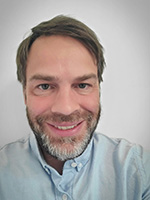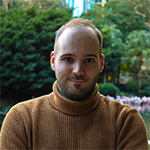 |
||
Home > TERATEC FORUM > Workshops > Workshop 4
TERATEC 2025 Forum |
|
HPC, AI and quantum digital technologies in healthcare
Chaired by Yves Vandenbrouck, Research Director, CEA
and Christian Saguez, Co-founder and Honorary Chairman, Teratec
Integrating HPC and AI into healthcare infrastructures: new approaches for optimized data processing
By Thomas Bouissou, HPC systems engineer, Axians
and Tom Ragonneau, Innovation engineer, Axians
Healthcare players face a major challenge: processing and analyzing massive amounts of clinical, genomic and imaging data to improve care and research. In this workshop, we will explore how High-Performance Computing (HPC) and Artificial Intelligence (AI) can be effectively integrated into IT infrastructures to meet this challenge and perform complex simulations. In addition to classic HPC and AI applications, we will also present an innovative RAG solution that opens up new perspectives for specific assistance to healthcare professionals.
 |
Biography: Thomas Bouissou has over 12 years' experience in the HPC field, having held the positions of engineer and consultant. He holds a PhD in theoretical physics from the Université Toulouse III (Paul Sabatier). During these years of research, he had access to high-performance computing resources, giving him the opportunity to enter the specific field of HPC. In 2015 he joined Axians HPC, an entity dedicated to providing distributed solutions such as HPC Clusters, Deep Learning and Scalable Storage. He currently holds the position of HPC Engineer within the same entity. |
 |
Biography: Tom Ragonneau currently holds the position of innovation engineer at Axians HPC & AI, an entity of the Axians group specialising in the implementation of high-performance solutions based on HPC, scalable storage, traditional deep learning and generative AI. He holds an engineering degree in computer science and applied mathematics with a specialisation in HPC & Big Data from Toulouse INP-ENSEEIHT, as well as a PhD in computational mathematics from Hong Kong Polytechnic University. |